What Time Is Too Late to Start a Wedding? Evening Ceremony Guidelines
When planning your special day, one of the first questions you might ask is what time you should start your wedding. The timing of your wedding can have a significant impact on everything from the atmosphere of your ceremony to the comfort and convenience of your guests. While there’s no one-size-fits-all answer, generally, weddings earlier in the day afford a more relaxed schedule, while evening events can offer a more formal vibe.
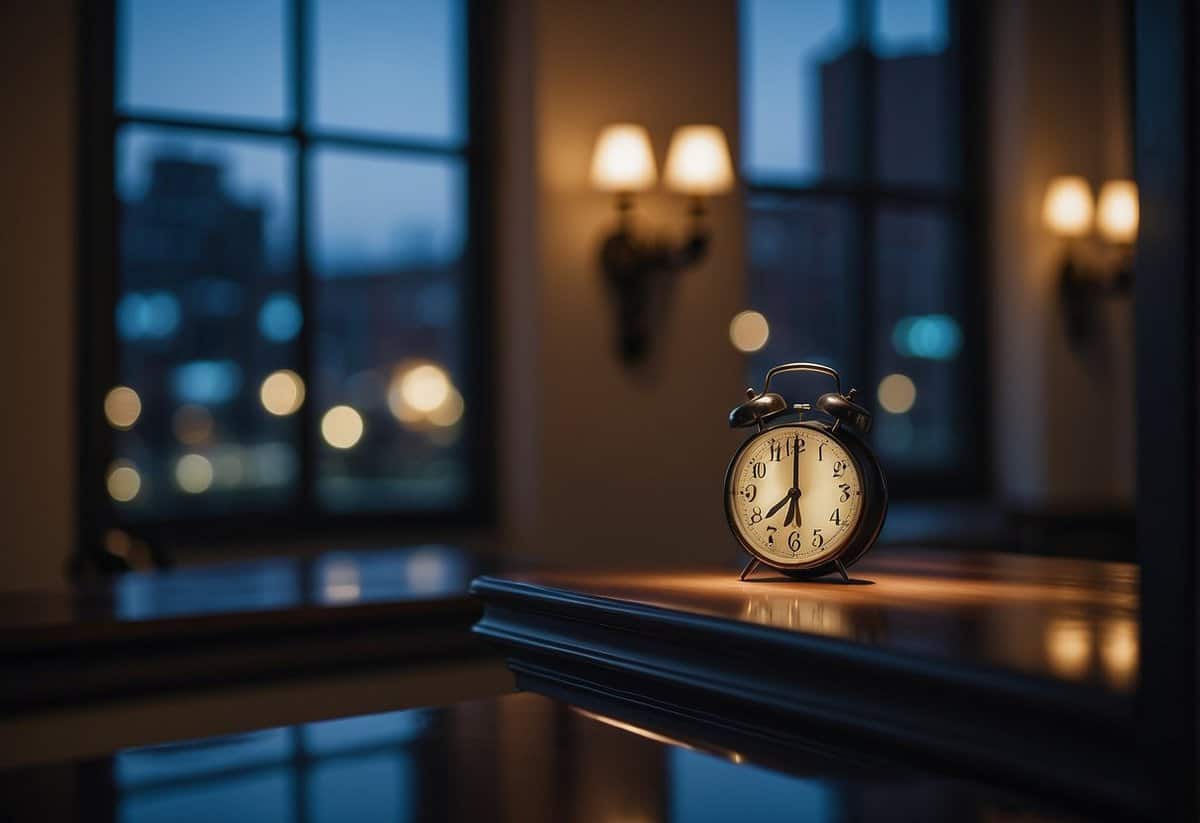
Considering the ceremony start time involves balancing the needs of your vendors, the type of lighting for photography, and the overall experience of your guests. Evening weddings, typically not starting later than 6 p.m., allow for a more traditional and romantic setting, but starting too late might inconvenience guests or disrupt your timeline. Ultimately, your wedding day is a reflection of your personal style and the shared experience you want to create for family and friends.
Key Takeaways
- Choose a start time that complements the wedding’s style and guest experience.
- Factor in photography needs and vendor coordination when setting your timeline.
- A timely start respects guests’ convenience and ensures a smooth celebration flow.
Establishing Your Wedding Timeline

Creating a wedding timeline is crucial to ensure that your special day runs smoothly. It’s about finding the right balance between what you want and the practical considerations of your event.
Determining the Start Time
When setting your start time, think about the type of ceremony you’re envisioning and consult with your wedding planner. An earlier start might mean a more relaxed day, while a later ceremony could lead to a more vibrant evening atmosphere. Consider factors like the season; for example, a summer wedding might benefit from a later start to avoid the midday heat.
Considerations for Reception and Photography
Your reception and photography schedule are closely tied to the ceremony’s start time. If you’re planning a first look, coordinate with your photographer to allow sufficient time before the ceremony. For timing the reception, factor in events like the meal, speeches, and dancing. Ensure there’s enough time for family photos and couple portraits during the optimal lighting conditions.
Incorporating Traditional Wedding Events
Incorporating traditional events such as the exchange of vows, toasts, and the first dance, requires careful timing within your wedding timeline. Discuss with your wedding planner to understand how long each segment typically lasts. This will influence the overall duration of your wedding ceremony and reception, helping you decide on a feasible and enjoyable schedule.
Coordination and Logistics
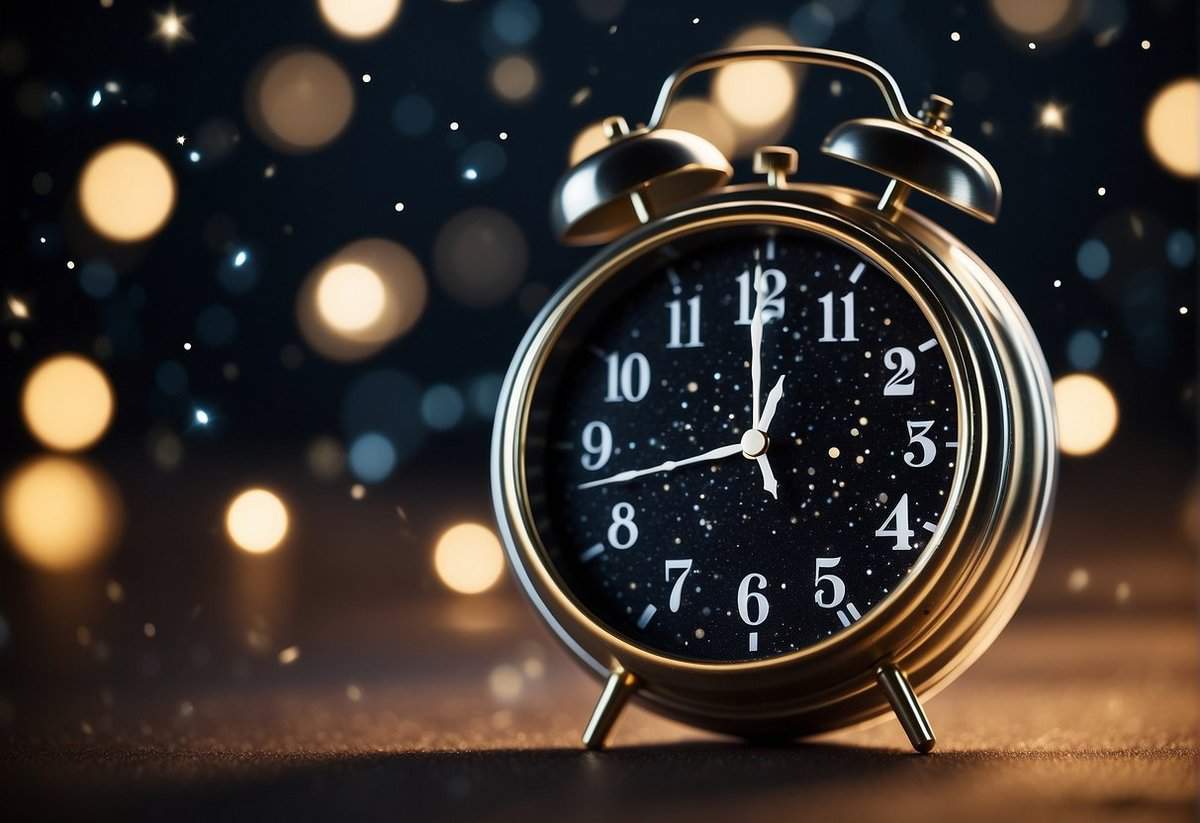
When planning your wedding, coordinating venue and vendor arrivals, setting up transportation and accommodations, and allotting buffer time are essential to avoid running behind schedule. These elements help ensure your wedding day unfolds smoothly.
Venue and Vendor Coordination
Your wedding venue is the stage for your special day, so it’s vital to synchronize the setup times with all vendors. If your ceremony is set to start later in the evening, confirm with your venue that they can accommodate late setups. Make sure that the caterer, florist, and decorator know the timeline and have access to the venue when they need it. For instance:
- Caterer setup: 3 PM – 5 PM
- Florist arrival: 2 PM – 3 PM
- DJ soundcheck: 4 PM – 5 PM
Transportation and Accommodation
Consider transportation and accommodation logistics if you’re planning a late start. You should ensure that your guests have transport options for arriving and leaving the venue at late hours. Additionally, it’s courteous to block out rooms at a nearby hotel, especially for those who travel from out of town. Here’s what you might arrange:
- Shuttle service from hotel to venue: Start at 5 PM
- Post-reception transportation until 2 AM
- Blocked hotel rooms for guests, ensuring late check-out
Buffer Time for Unexpected Delays
Always include extra time in your wedding day schedule as a cushion for unforeseen delays. Having an usher or coordinator to manage the flow can help you stay on track. If you start late, these adjustments will limit stress:
- Ceremony start time: 6 PM (planned for 5:30 PM)
- Cocktail hour: 6:30 PM (shortened if necessary)
- Reception start: 7:30 PM (with flexible end time)
By carefully planning logistics, coordinating details ahead of time, and preparing for adjustments, you can have a successful late-start wedding.
Guest Experience and Etiquette
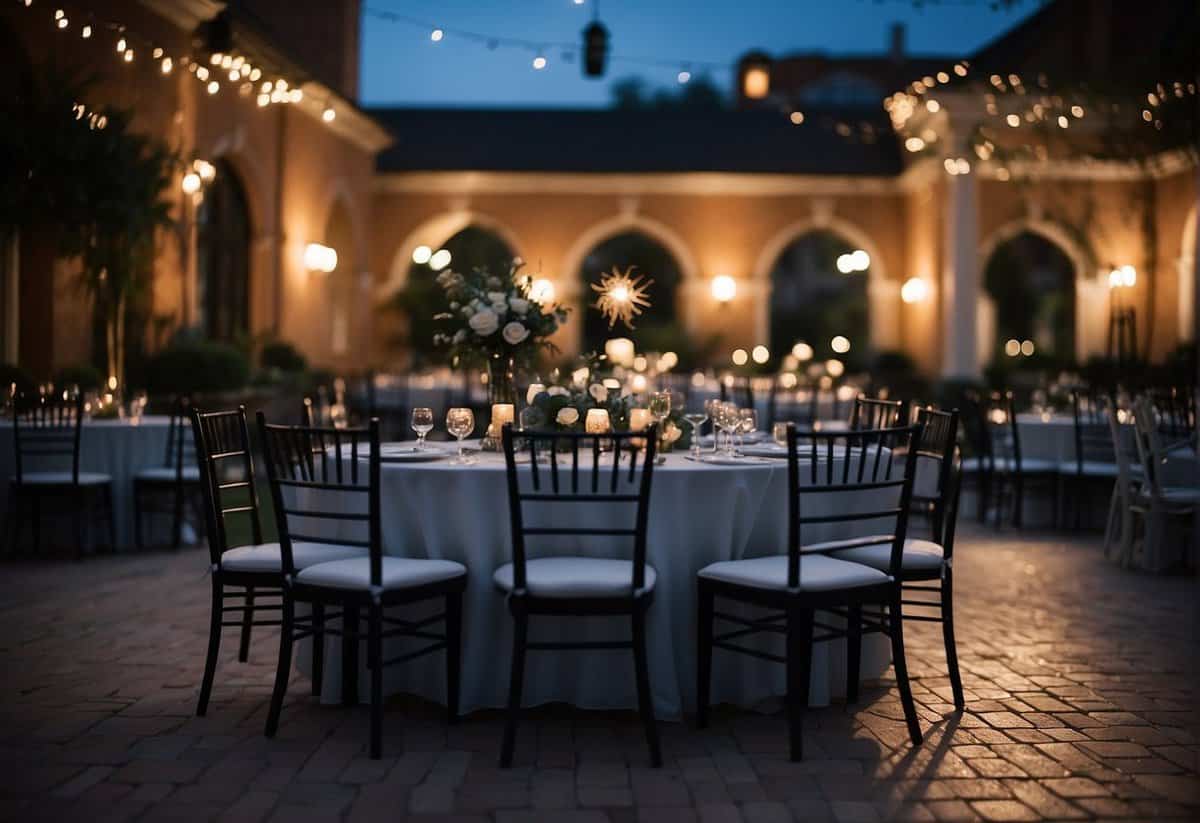
When you receive a wedding invitation, it’s essential to understand the expectations around your arrival and participation. Not only does your timely arrival affect the ceremony’s flow, but it also contributes to the overall experience and enjoyment for everyone involved.
Invitation and Timely Information
Your wedding invitation holds critical details regarding the event. Pay close attention to the time listed on the invitation—this is when the couple expects you to be seated and ready for the ceremony. Always plan to arrive 15 to 30 minutes early to avoid any delays.
Managing Late Arrivals
If you find yourself running late, it’s important to handle the situation with grace. Respectfully enter the venue and find a seat quickly and quietly to minimize disruption. If the ceremony has already started, wait for an appropriate pause or for an usher to guide you, ensuring that you do not draw attention away from the couple’s special moment.
Enjoyment and Engagement Throughout the Night
Once you’ve arrived on time, the wedding unfolds into a night of celebration. Enjoy appetizers, reception drinks, and savor the food service provided. Being punctual means you won’t miss out on any planned festivities designed to engage and entertain you—you’re an integral part of the reception’s joyous atmosphere!
Details That Make the Day Special
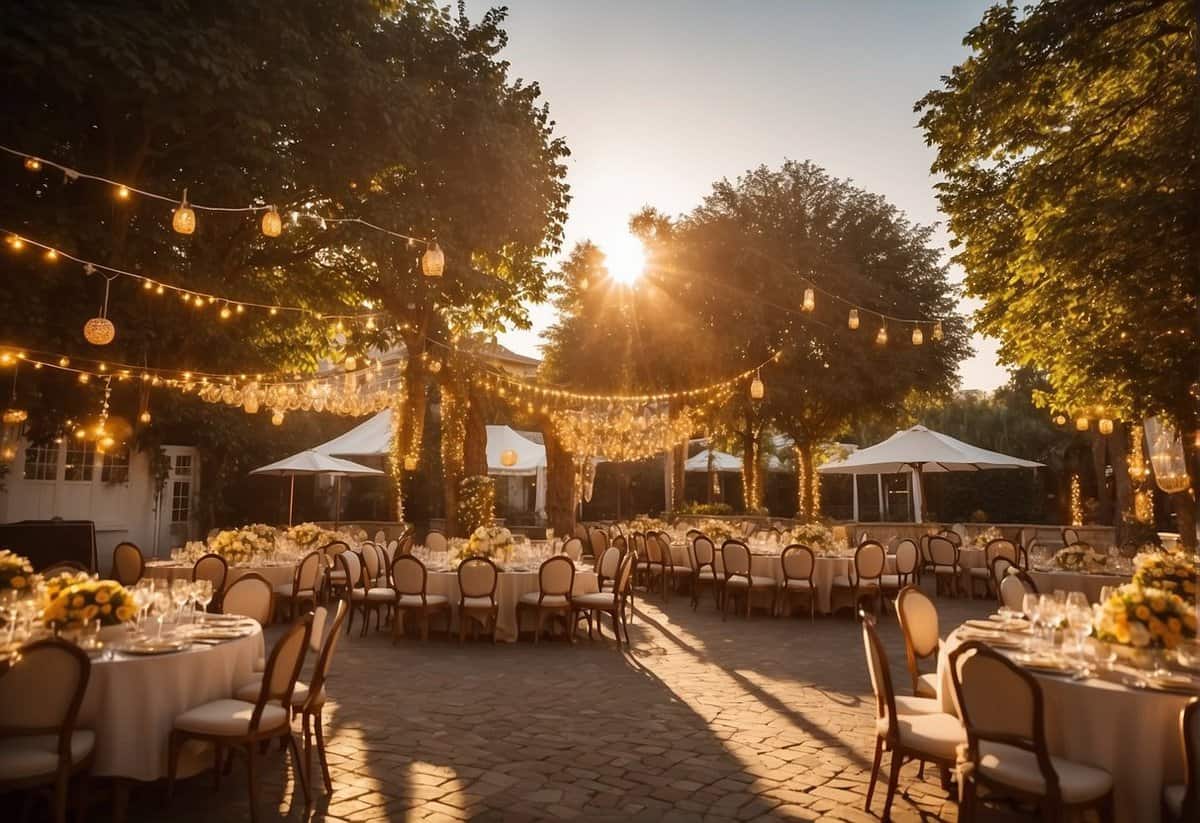
When you’re planning your wedding day, it’s the unique details that make your celebration unforgettable. From the ambiance created by careful decoration to the memorable moments sparked by personal touches, each aspect contributes to an experience that’s distinctively yours.
Decoration, Lighting, and Ambience
Imagine walking into a venue where the lighting perfectly captures the mood of your special day. Soft, warm lights that add a golden hue to the setting can make even a late-start wedding feel intimate. Detail shots of the decorations will capture the essence of the aesthetic you’ve created. Strings of fairy lights, elegant chandeliers, or lanterns can transform a space and infuse it with romance.
- Ambience Tips:
- Choose lighting that complements the time of your wedding and sets the desired mood.
- Decorate with elements that reflect your personality and wedding theme.
Personal Touches and Wedding Favors
Your wedding day is about the personal stories that you and your partner share. From bridesmaids wearing accessories that have sentimental value to custom wedding favors that express your gratitude, these personal touches are what your guests will cherish. Provide favors that are not just keepsakes, but also speak to the enjoyable experiences had at the event, such as miniature champagne bottles to continue the celebration at home.
- Memory Makers:
- Offer personalized favors that mean something special to you and your guests.
- Incorporate unique elements that highlight your journey as a couple.
The Finale: Desserts and Dancing
No matter what time your wedding begins, it’s the finale that leaves a lasting impression. A stunning wedding cake, an array of dessert options, and a lively dance floor can end the night on a high note. Imagine cutting into a multi-tiered cake as the centerpiece of your dessert table, followed by guests joining you on the dance floor, possibly with sparklers in hand to add that magical touch.
- Finale Favorites:
- Select a wedding cake that is both visually impressive and delicious.
- Ensure the dance floor is inviting and spacious for all to join in the celebration.
Frequently Asked Questions
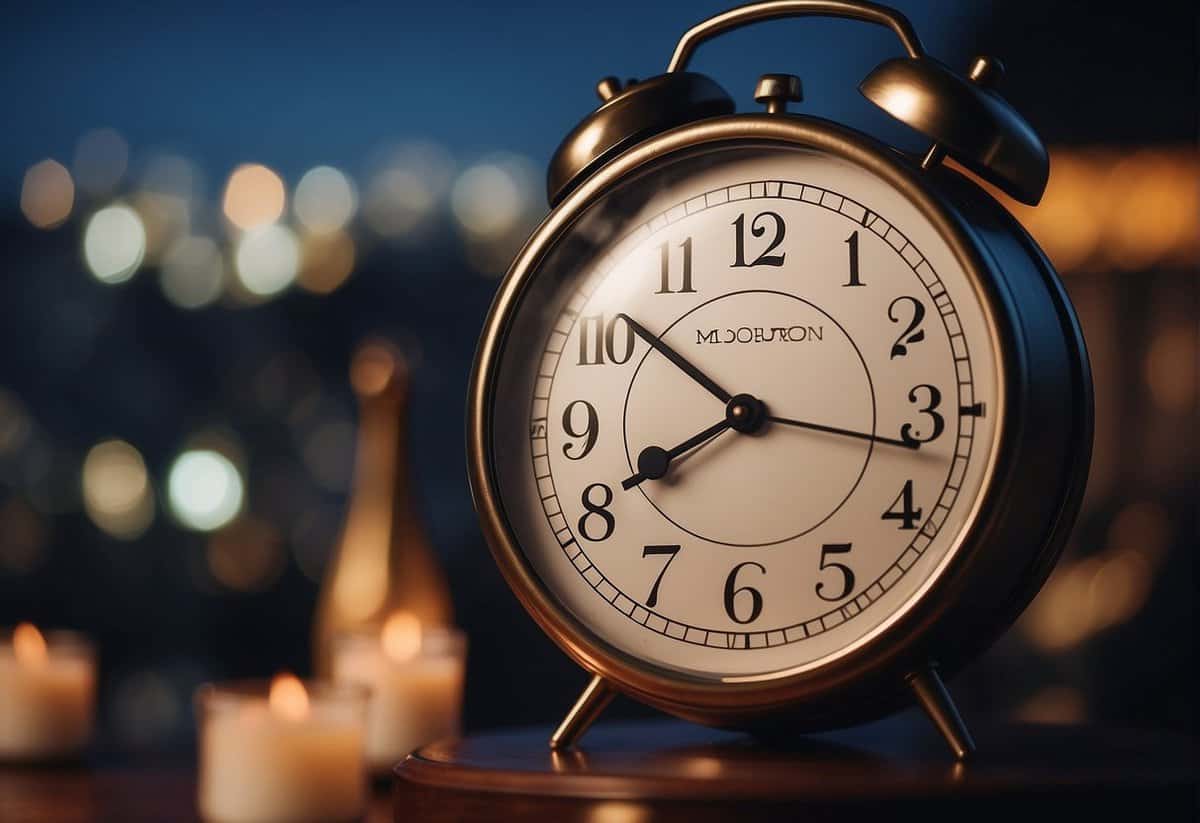
When planning your special day, you’re bound to have questions about timing. These FAQs address common concerns about when to start your wedding to ensure it’s neither too early nor too late.
What’s the latest time you can start your wedding without it being too late?
Typically, a wedding should start no later than early evening. Some venues may have restrictions, so it’s essential to check with them. The aim is to allow enough time for the ceremony and reception, ensuring guests don’t feel rushed.
How late can a wedding ceremony begin on a Saturday?
Saturday weddings offer more flexibility with timing. A ceremony can begin in the late afternoon, such as around 4:00 p.m., to transition smoothly into an evening reception.
Are evening weddings acceptable and what is the best time for them?
Evening weddings are quite popular, offering a romantic ambiance. The best time for an evening wedding is generally between 6:00 p.m. and 7:00 p.m., allowing time for dinner and festivities afterward.
For an October wedding, what is the ideal start time?
An October wedding is best scheduled for a mid to late afternoon start, such as 3:00 p.m. or 4:00 p.m., to take advantage of the remaining daylight and the natural beauty of the fall season.
What does a typical wedding day timeline look like?
A typical wedding day timeline includes several key events, starting with hair and makeup in the morning, followed by photos, the ceremony, and the reception, which may end around midnight.
Can you start your wedding at 2pm or is that considered too late?
A 2:00 p.m. start is certainly not too late. It’s actually quite a common choice, giving ample time for the ceremony and a comfortable segue into an evening reception.


